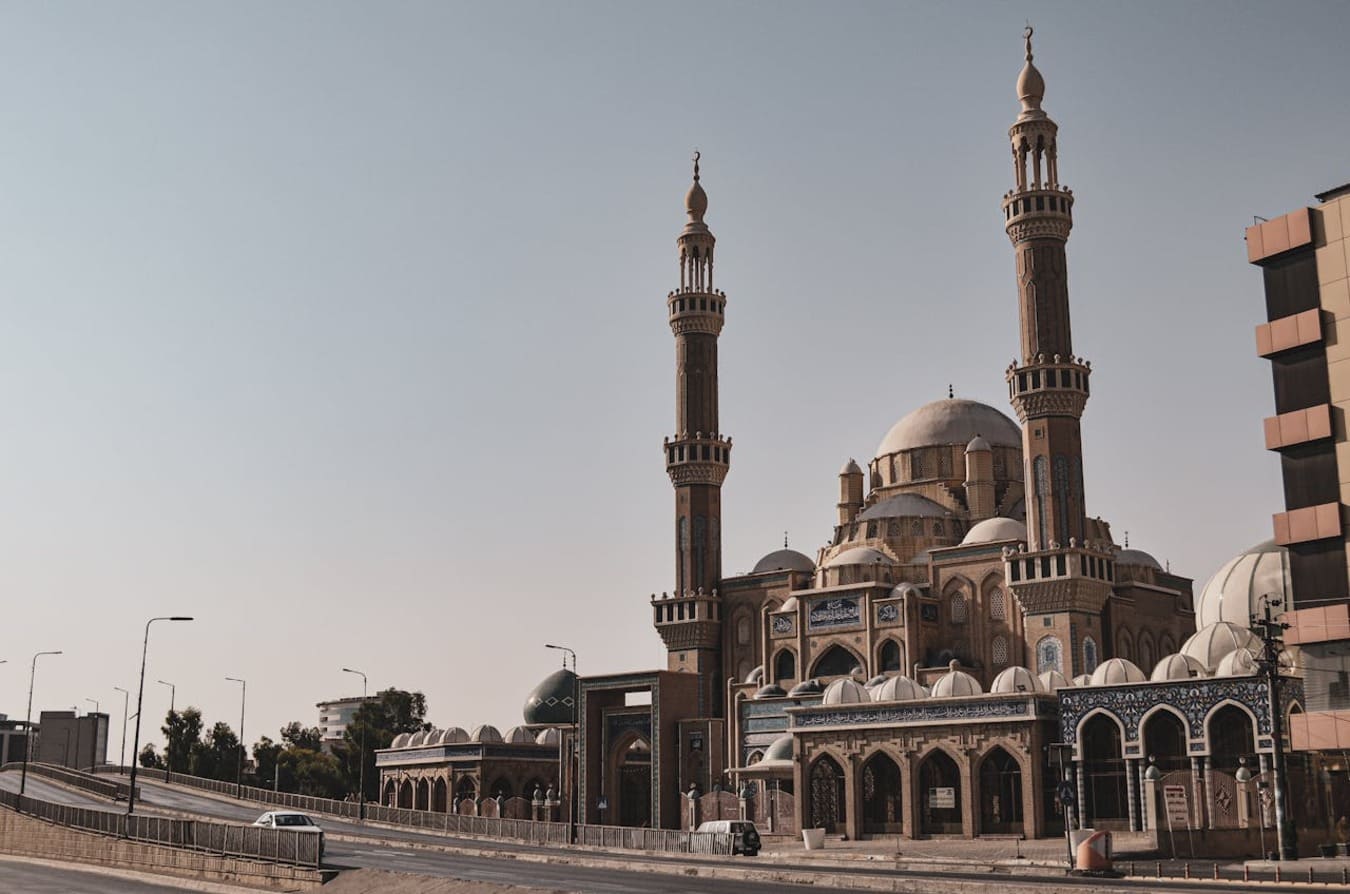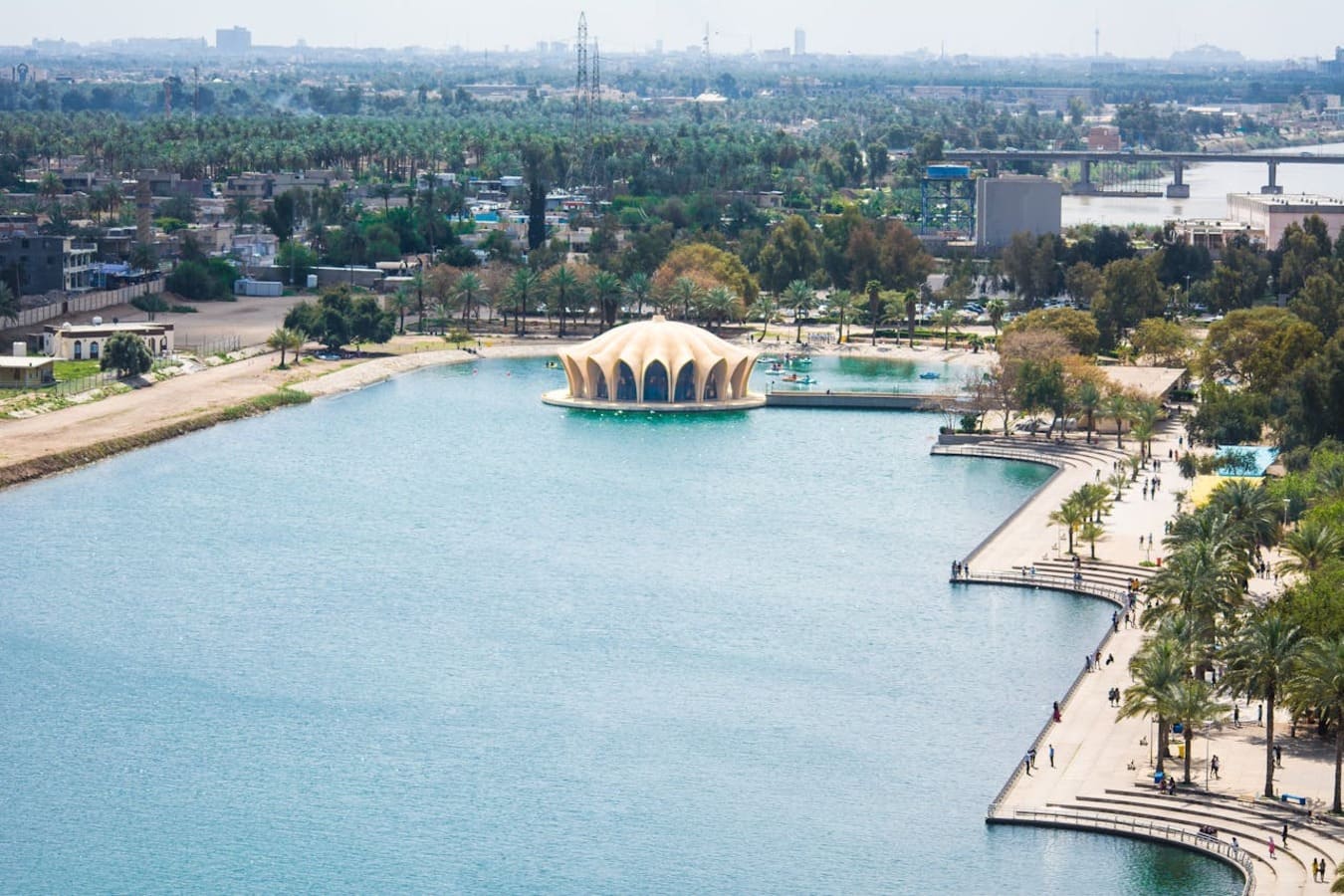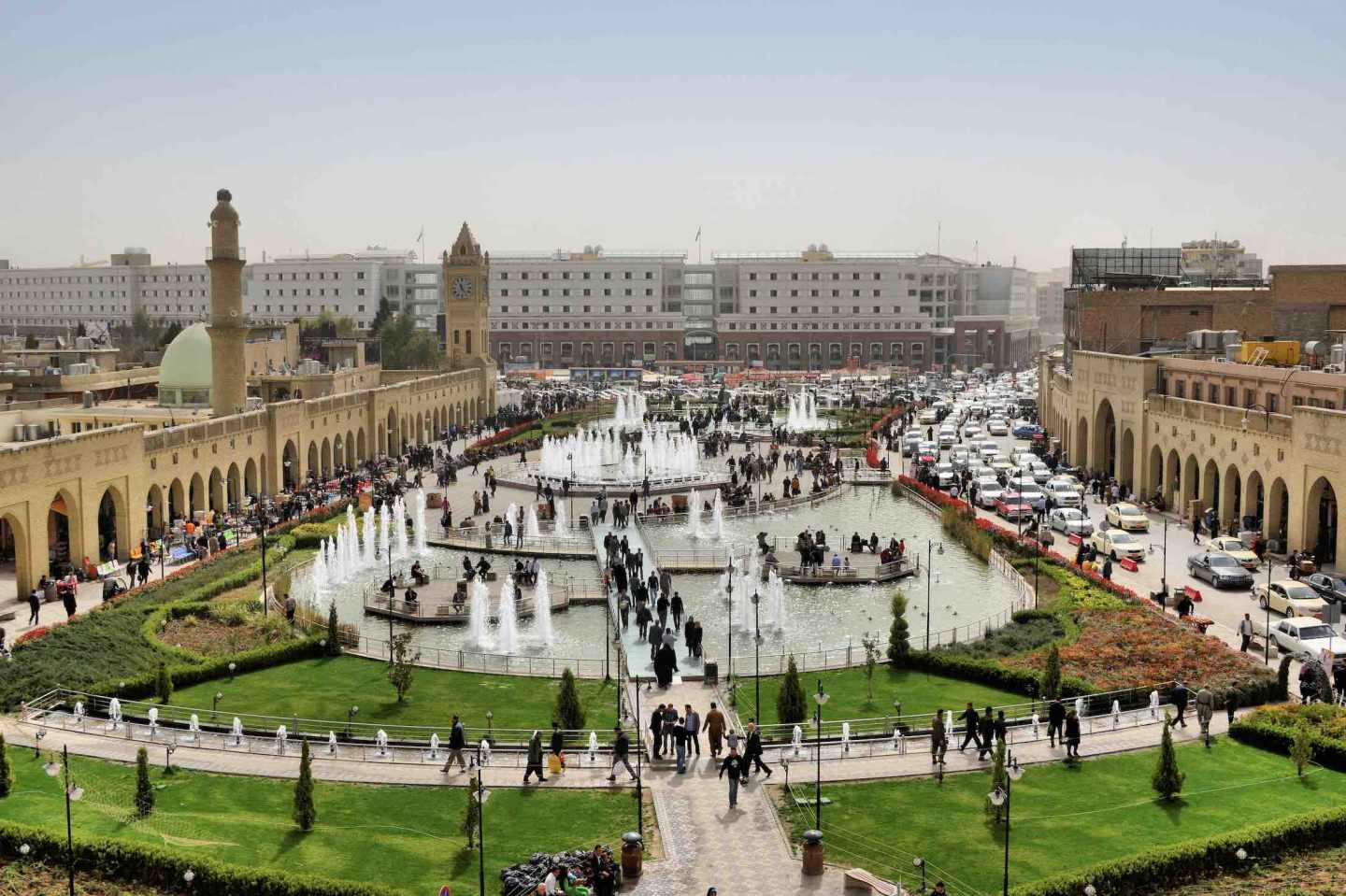Marktonderzoek in Irak

Have you ever wondered about the untapped potential of the Iraqi market? With its rich history, diverse demographics, and evolving economy, Iraq presents a myriad of opportunities for businesses. With strategic market research in Iraq, global companies can capitalize on this growing market.
What Is Market Research in Iraq?
Market research in Iraq analyzes data related to the Iraqi market to gain insights into consumer behavior, market trends, competitor strategies, and business opportunities.
Market research in Iraq aims to provide businesses with actionable insights and strategic recommendations that enable informed decision-making and market entry strategies. Actually, by understanding the Iraqi market landscape, including regulatory frameworks, cultural nuances, and consumer preferences, businesses can mitigate risks, identify growth opportunities, and optimize their market penetration strategies effectively.
Why Do Businesses Need Market Research in Iraq?

Market research in Iraq uncovers untapped opportunities in the Iraqi market, including emerging consumer trends, niche markets, and unmet needs. By analyzing market data and consumer insights, businesses can identify gaps in the market and develop innovative products or services that resonate with Iraqi consumers.
Additionally, market research in Iraq helps businesses assess these risks, identify potential pitfalls, and develop risk mitigation strategies to safeguard their investments and operations in Iraq.
It also provides valuable insights into market entry barriers, competitive landscape, and consumer preferences, enabling businesses to tailor their strategies for success in Iraq.
Onze huidige marktbeoordeling en aanbevelingen
We notice Iraq’s economy has been experiencing gradual recovery and growth following years of conflict and instability. Key sectors such as oil and gas, construction, telecommunications, and retail drive economic activity and attract investment. However, ongoing political tensions, security concerns, and infrastructure challenges continue to impact market dynamics.
Despite challenges, Iraq presents significant growth potential for businesses navigating its complexities. With a young and growing population, increasing urbanization, and ambitious infrastructure projects planned for the future, the Iraqi market offers diverse opportunities across various sectors. Businesses should closely monitor developments and adapt strategies to capitalize on emerging trends and market shifts.
Mogelijke ROI:
While investing in the Iraqi market presents risks, businesses that approach the market strategically and with a long-term perspective can achieve significant returns on investment. By leveraging market research insights, developing tailored market entry strategies, and building strong local partnerships, businesses can mitigate risks and capitalize on growth opportunities, ultimately maximizing ROI.
Expected Results from SIS’s Market Research Services in Iraq

SIS International’s market research services in Iraq are designed to deliver tangible results and actionable insights that drive business success. Here’s what businesses can expect from our services:
Uitgebreide marktinzichten:
Through SIS rigorous research methodologies and in-depth analysis, businesses can expect a comprehensive understanding of the Iraqi market landscape, including consumer behavior, market trends, competitive dynamics, and regulatory environment.
Strategieën voor risicobeperking:
By identifying potential risks and challenges in the Iraqi market, SIS International helps businesses develop risk mitigation strategies to safeguard their investments and operations.
Optimized ROI:
Our market research services aim to optimize return on investment for businesses operating in Iraq. Providing actionable insights and strategic recommendations, we help companies allocate resources effectively, identify growth opportunities, and maximize ROI in the Iraqi market.
Concurrentievoordeel:
Businesses that leverage SIS International’s market research services gain a competitive advantage in Iraq’s marketplace. Our insights enable companies to differentiate themselves from competitors, capitalize on market opportunities, and outperform rivals, ultimately driving sustainable growth and success.
Belangrijkste industrieën
Agriculture, services, and oil are the main sectors. They all move to boost the economy.
The oil sector of Iraq plays a vital role in the country’s growth. Oil production and sales contribute a vast amount to increasing the country’s GDP. This sector also provides the majority of the government’s revenue. Iraq is another gem in the world’s oil market, producing millions of barrels daily and a large portion of the world’s total oil supply.
Agriculture also forms part of the country’s GDP. Another key point about this sector is that it employs a lot of the workforce. Past wars have affected this sector. Still, Iraq has taken measures to rebuild it. It has become more modernized with irrigation systems used in many farms. These advances further increase the amount of produce the country harvests. Wheat, barley, rice, and fruit and vegetables are the primary crops. Iraq is also a large-scale producer and exporter of dates.
The service sector is a critical economic driver in Iraq. It entails finance, retail, security, transport, and government services. In addition, it’s important to note the source of the funding. Oil revenues help fund most projects carried out by the services industry.
Leading Players in Key Industries in Iraq
In Iraq’s dynamic business landscape, several leading players dominate key industries, driving innovation, growth, and market competitiveness. Here are some of the leading companies and brands across key sectors in Iraq:
- Iraq National Oil Company (INOC): As the state-owned entity responsible for Iraq’s oil and gas sector, INOC plays a central role in managing and developing the country’s oil reserves.
- BP, ExxonMobil, Shell: International oil companies (IOCs) like BP, ExxonMobil, and Shell are involved in various oil and gas exploration, production, and development projects in Iraq through partnerships and joint ventures.
- Orascom Construction: Orascom Construction, a leading international construction company, has been involved in several infrastructure projects in Iraq, including roads, bridges, and utilities.
- LafargeHolcim: LafargeHolcim, a global leader in building materials, provides cement and concrete solutions for construction projects in Iraq.
- Zain Iraq: Zain Iraq, a subsidiary of Zain Group, is one of Iraq’s leading telecommunications operators, providing mobile and data services to millions of subscribers nationwide.
- Asiacell: Asiacell, part of the Ooredoo Group, is another major telecommunications operator in Iraq. It offers mobile, internet, and value-added services to Iraqi consumers.
- Carrefour: Carrefour, a multinational retail corporation, operates hypermarkets and supermarkets in Iraq and deliversa wide range of consumer goods and household products.
- Jawad Al Kharsa & Co.: Jawad Al Kharsa & Co. is a leading retail group in Iraq, with a diverse portfolio of retail brands across sectors such as fashion, electronics, and home appliances.
- Rotana Hotels, a leading hotel management company, operates several luxury hotels and resorts in Iraq, catering to business and leisure travelers.
- Sheraton Baghdad Hotel: This prominent landmark in the city offers upscale accommodation, dining, and event facilities for travelers visiting Iraq’s capital.
Buurten

Baghdad
Baghdad is Iraq’s capital and largest city. The city is also the second-largest in the Arab World and Western Asia. Its location has allowed it to evolve and trade along the Tigris. So, not only does the Tigris supply water to ease dry climate and drought, but also, it is a commercial and cultural site for the people. This river also separates Baghdad into Risafa on the east and Karkh on the west. The city itself certainly adds to the GDP.
Basra
Basra is the second-largest city in Iraq. It is a port city overall, but it also benefits farmers. Many streams and canals run throughout and serve as irrigation. Basra’s economy also relies on the oil industry.
Hillah
Hillah is in an agriculture-rich region of central Iraq. It is near the Euphrates River’s Hillah branch, close to ancient Babylon’s ruins. This city is a cultural playground. The Hillah farms produce crops, fruit, and textiles.
Trends
Some of the major trends happening in Iraq now are real estate and eCommerce. More companies are looking to cement their place in the country and economy. Thus, they buy long-term office spaces and land. It also allows them to become more engaged with the consumers and people.
Technology is another growing trend in Iraq and the world. When Covid-19 hit, access to many stores was put on hold. As a result, more people are getting involved in e-commerce. Food delivery and online grocery shopping had a rapid increase.
Voordelen en sterke punten van de markt
Iraq’s market stands out because of a few benefits. For one thing, Iraq is one of the world’s leading oil suppliers and one of the original members of the Organization of Petroleum Exporting Countries (OPEC).
The country has billions of barrels in proven oil reserves, making it one of the largest producers in the world.
Another strength of the market is its international support. Iraq still receives support from the United Nations.
The country also receives other international financial support, such as IMF and bilateral loans.
Iraq has a robust labor force because almost two-thirds of the population is under 30. The youth of Iraq are eager to show their creativity in business ventures. The labor force has seen a huge increase as compared to recent years. Thus, companies don’t have to search far for talent.
Consumentenbasis
Iraq’s consumer base is neither too strong nor too weak. Consumer spending has also been increasing over the years, and the employment rate is likely to increase. Companies need consumer loyalty for their survival. Consumers, on the other hand, need product security and excellent customer service. In fact, the consumer base will increase if people get the right incentives.
Redenen om uw bedrijf op de markt te laten groeien
Iraq has natural resources, fertile land, and intelligent people. The country has also been a victim of poor management, but this is changing.
Iraq has been affected by many conflicts over the years. Still, it has many opportunities for risk-tolerant investors. Almost every sector needs investment, and the country’s 40 million people are a market hungry for new life.
There has been a dramatic improvement in Iraq’s security problem. The number of people killed in attacks has lowered in past years. The increasing safeness is a benefit. It makes the thought of investment in Iraq more palatable. Still, it may be hard for foreign companies because of the stigma toward them.
Opportunities in Iraq for Businesses
Despite challenges, Iraq presents significant opportunities for businesses across various sectors. Here are some key opportunities for businesses operating in Iraq:
- Infrastructuurontwikkeling: With ongoing reconstruction efforts and investment in infrastructure projects, there are ample opportunities for businesses in construction, engineering, and infrastructure development. Projects include road construction, building new facilities, and upgrading utilities.
- Olie en gas: Iraq’s abundant oil reserves make it an attractive destination for investment in the oil and gas sector. Opportunities exist for exploration, production, refining, and infrastructure development and in related industries such as logistics, services, and technology.
- Telecommunicatie: The telecommunications sector in Iraq offers opportunities for companies providing mobile, internet, and digital services. With growing demand for connectivity and expanding networks, there is room for investment in infrastructure, technology, and value-added services.
- Landbouw en voedselverwerking: Agriculture remains a vital sector in Iraq, with opportunities for investment in crop cultivation, livestock farming, and agribusiness ventures. There is demand for modern agricultural practices, irrigation systems, and food processing facilities.
Challenges of Doing Business in Iraq
While Iraq presents lucrative opportunities, businesses must face several challenges when operating there. Here are some of the key challenges:
- Veiligheidszorgen: Iraq has faced security challenges due to political instability, terrorism, and armed conflict. Security risks, including terrorism, insurgency, and civil unrest, can disrupt business operations, threaten employee safety, and damage infrastructure.
- Politieke instabiliteit: Iraq’s political landscape is characterized by volatility, with frequent changes in government and political tensions between different factions. Political instability can create business uncertainty, impacting investment decisions, regulatory environments, and market dynamics.
- Infrastructuurtekorten: Iraq’s infrastructure, including roads, utilities, and telecommunications, suffers from deficiencies and requires significant investment for improvement. Poor infrastructure can hinder business operations, increase costs, and limit market access, particularly in remote or conflict-affected areas.
- Corruption and Bureaucracy: Corruption and bureaucratic inefficiencies are prevalent in Iraq, posing challenges for businesses in obtaining permits, licenses, and approvals. Corruption can increase costs, delay projects, and undermine business integrity, requiring businesses to navigate complex regulatory environments carefully.
- Human Capital Constraints: Iraq faces skilled labor shortages, particularly in specialized industries such as engineering, healthcare, and technology. Businesses may struggle to recruit and retain qualified talent, which can impact productivity, innovation, and competitiveness.
- Currency Volatility: Iraq’s Iraqi dinar (IQD), is subject to volatility and fluctuation against major currencies such as the US dollar. Currency volatility can impact business planning, financial forecasting, and profitability, requiring businesses to manage foreign exchange risks effectively.
Onze vestigingslocatie in New York
11 E 22nd Street, 2e verdieping, New York, NY 10010 T: +1(212) 505-6805
Over SIS Internationaal
SIS Internationaal biedt kwantitatief, kwalitatief en strategisch onderzoek. Wij bieden data, tools, strategieën, rapporten en inzichten voor besluitvorming. Wij voeren ook interviews, enquêtes, focusgroepen en andere marktonderzoeksmethoden en -benaderingen uit. Neem contact met ons op voor uw volgende marktonderzoeksproject.


